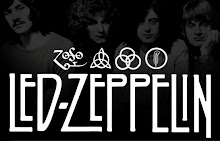Langston Highes
Let the rain kiss you...Let the rain kiss you. Let the rain beat upon your head with silver liquid drops. Let the rain sing you a lullaby. Humor is laughing at...Humor is laughing at what you haven't got when you ought to have it. I swear to the Lord I still...I swear to the Lord I still can't see why Democracy means everybody but me. Hold fast to dreams...Hold fast to dreams for if dreams die, life is a broken winged bird that cannot fly. Beauty for some provides escape...Beauty for some provides escape, who gain a happiness in eyeing the gorgeous buttocks of the ape or Autumn sunsets exquisitely dying. Like a welcome summer rain...Like a welcome summer rain, humor may suddenly cleanse and cool the earth, the air and you. When peoples care for you...When peoples care for you and cry for you, they can straighten out your soul.
On a separate sheet of paper:
Name one thing that fascinates you about Langston Hughes.
What can we infer(predict) about Langston’s travel regarding his character?
Explain/Interpret four of his quotes. How do they all relate?
List seven important bits of information from each paragraph.( one line per paragraph.)
eLangston Hughes was born on February 1, 1902 as James Langston Hughes son of Carrie Langston, a black school teacher and poet, and her husband James Nathaniel Hughes, a white lawyer, as a member of an abolitionist family in Joplin, Missouri while spending much of his childhood in Lawrence, Kansas being raised by his grandmother, Mary Langston, after his parents divorce.
Langston's childhood was not a happy one, however it later influenced much of his poetry. In his adolescant years, Hughes lived with his mother, who had remarried, in Lincoln, Illinios -- it was there that he discovered books. He began writing poetry in the eighth grade and was selected Class Poet.
Hughes later attended Central High School in Cleveland, Ohio. After his graduation in 1919, he spent a year in Mexico with his father, often contemplating suicide. He attended Columbia University to study engineering. Langston's father paid the tuition encouraging him to pursue a more practical career than writing. Soon though, Langston dropped out, with a B+ average, and continued writing poetry.
Langston's first published poem, also his most famous, The Negro Speaks of Rivers, appeared in Brownie's Book. Later, his poems, short plays, essays and short stories would appear in the NAACP publication of Crisis Magazine and Opportunity Magazine along with other publications.
One of Langston's many essays, and possibly his finest, appeared in the Nation in 1926 titled The Negro Artist and the Racial Mountain. The essay spoke of "racial pride in the name of a false integration" where a talented Black writer would prefer to be a poet, rather than a Black poet.
Hughes wrote, "no great poet has ever been afraid of being himself.... We younger Negro artists now intend to express our individual dark-skinned selves without fear or shame. If white people are pleased we are glad. If they aren't, it doesn't matter. We know we are beautiful. And ugly too... If colored people are pleased we are glad. If they are not, their displeasure doesn't matter either. We build our temples for tomorrow as strong as we know how and we stand on the top of the mountain, free within ourselves."
In 1923, after joining the Navy as a ship's steward, Hughes traveled abroad to Senegal, Nigeria, the Cameroons, Belgium Congo, Angola, Guinea, Italy, France, Russia and Spain. One of his favorite pasttimes, whether abroad or in the states, was sitting in the clubs listening to blues, jazz and writing poetry. Through this, a new rhythm emerged in his writings and a series of poems, such as The Weary Blues were penned.
Saturday, December 13, 2008
Subscribe to:
Post Comments (Atom)

No comments:
Post a Comment